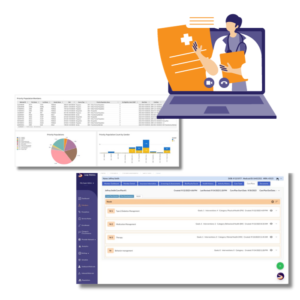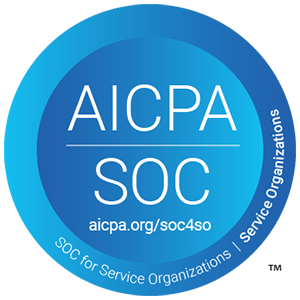Proactive management of population health is mission-critical for both providers and payers. The advent of predictive and suggestive analytics has revolutionized how we approach healthcare, enabling us to identify and address potential health issues before they escalate into long-term, chronic conditions. This proactive approach is essential in managing chronic conditions effectively and improving overall health outcomes. Here, we will explore the significance of predictive and suggestive analytics in proactive managed care, the types of chronic conditions that require such care, and how Sevida empowers healthcare to know enough to care for every life better.
The Power of Predictive and Suggestive Analytics
Predictive and suggestive analytics leverage the vast amounts of healthcare data available today to forecast health trends, identify at-risk populations, and recommend interventions. These analytics are instrumental in enabling healthcare professionals to take proactive steps to prevent, manage, and treat chronic conditions effectively. Here’s how they work:
- Data Collection and Integration
Predictive analytics starts with the collection and integration of diverse healthcare data sources. These sources may include electronic health records (EHRs), claims data, patient-generated data through wearables or other devices, and more. Sevida serves data aggregation and management solutions, providing a seamless platform for collecting, storing, and integrating these data streams.
- Advanced Algorithms
Once the data is in place in the Sevida Data Pod, advanced machine learning algorithms and AI-driven models come into play. These algorithms analyze historical data to identify patterns and trends often too complex for humans to detect – and certainly time-consuming for practitioners to analyze. Sevida’s expertise in healthcare analytics ensures that these algorithms are optimized for the unique needs of healthcare providers and payers.
- Risk Stratification
One of the primary applications of predictive analytics in proactive managed care is risk stratification. This involves categorizing patients into risk groups based on their likelihood of developing specific chronic conditions or experiencing adverse health events. Sevida’s AI-driven care management tools specialize in risk stratification, helping healthcare organizations prioritize their interventions effectively.
- Personalized Interventions
Suggestive analytics take predictive insights to the next level by providing personalized recommendations for interventions. These recommendations can include care plans, medication adjustments, lifestyle modifications, and more. Sevida’s mission to empower healthcare aligns perfectly with this aspect of healthcare analytics, as it aims to provide comprehensive solutions that enable personalized care for every patient.
Chronic Conditions Benefiting from Proactive Managed Care
Proactive managed care is particularly crucial for individuals with chronic conditions. Chronic conditions are long-term health issues that require ongoing management and can significantly impact a person’s quality of life. Here are some common chronic conditions that benefit from proactive care:
Cardiovascular Diseases
Heart disease, hypertension, and other cardiovascular conditions are among the leading causes of death worldwide. Predictive analytics can help identify individuals at risk of heart-related issues and guide interventions to prevent heart attacks, strokes, and other cardiovascular events.
Diabetes
Diabetes is a chronic condition that affects how the body processes glucose. With predictive analytics, healthcare providers can monitor blood sugar levels, detect early signs of complications, and adjust treatment plans accordingly.
Respiratory Conditions
Asthma and chronic obstructive pulmonary disease (COPD) are examples of respiratory conditions that require proactive management. Predictive analytics can help identify triggers, monitor lung function, and prevent exacerbations.
Cancer
Cancer is a complex disease with numerous risk factors. Predictive analytics can aid in cancer prevention by identifying individuals at higher risk and recommending appropriate screenings and lifestyle changes.
Mental Health Mental health conditions like depression and anxiety also benefit from proactive care. Suggestive analytics can help identify changes in mood or behavior and recommend interventions such as therapy or medication adjustments.
Sevida’s Comprehensive Solution for Proactive Managed Care

Sevida, as a mission-driven organization, is at the forefront of providing comprehensive solutions for data management, healthcare analytics, and AI-driven care management. Here’s how Sevida empowers healthcare to know enough to care for every life better:
Sevida’s robust platform offers seamless data integration and management solutions, allowing healthcare organizations to gather and utilize data effectively. This is the foundation upon which predictive and suggestive analytics rely.
Our expertise in healthcare analytics ensures that providers and payers have access to accurate, timely, and actionable insights. These insights support decision-making, risk stratification, and the development of personalized care plans.
Sevida’s AI-driven care management workflows provide actionable recommendations for healthcare professionals. These tools can help in identifying high-risk patients, suggesting appropriate interventions, and monitoring the progress of care plans.
Predictive and suggestive analytics are indispensable tools in the proactive managed care of population health. They enable healthcare providers and payers to identify, stratify, and intervene in chronic conditions effectively. Sevida’s mission-driven approach and comprehensive solutions in data management, healthcare analytics, and AI-driven care management make it a valuable partner in achieving the goal of caring for every life – better. By harnessing the power of these technologies, we can work towards a future where proactive care becomes the standard, leading to healthier lives and reduced healthcare costs.

